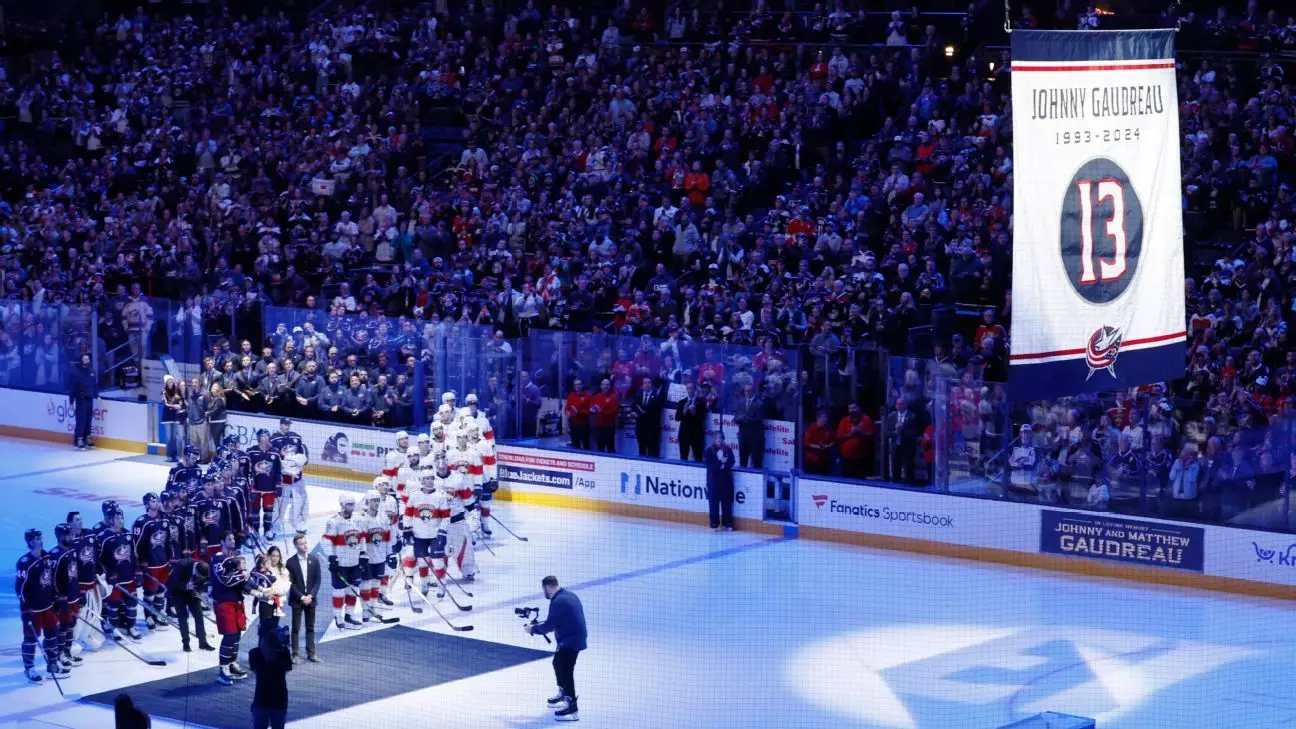On a fateful night in August 2024, two brothers from the Gaudreau family, famed not just for their shared love of hockey but also for their deep-rooted familial bonds, succumbed to a tragic fate. Cycling home near their hometown in southern New Jersey, Johnny Gaudreau, an NHL star known affectionately as “Johnny Hockey,” and his brother Matthew were struck by a vehicle operated by Sean Higgins, who was allegedly under the influence of alcohol and fuelled by road rage. This incident did not only shatter the Gaudreau family but also threw into stark relief the often-overlooked complexities of responsibility in tragic circumstances.
The courtroom has become a stage for the agonizing exploration of blame as lawyers and family members wrestle with the painful ramifications of that night. The ensuing legal debates have eerily spotlighted the very human tendency to seek culpability in tragedies—even when it may be unwarranted. In an era where accountability in actions, particularly concerning substance use, has come to dominate public discourse, this case underscores how grief can collide with legal arguments.
The Legal Arguments: Seeking a Scapegoat?
In the aftermath of the collision, discussions emerged concerning the blood alcohol levels of the Gaudreau brothers. The defense aimed to illustrate that Johnny and Matthew played a role in the tragic events that unfolded, citing their higher-than-legal blood alcohol content. Yet, as Judge Michael Silvanio firmly stated, the notion of contributory negligence was met with skepticism. To suggest that the brothers’ drinking contributed to their deaths feels not only like a defense mechanism but reeks of desperation. How convenient it can be, in the face of unfathomable loss, to shift parts of the blame onto the victims.
A clear picture painted by eyewitness accounts indicated the brothers riding responsibly—single file and along the edge of the road. This clashes starkly with the defense’s narrative, which appears more focused on deflection than truth. The complexity lies in the duality of the law—the need to hold someone accountable for their actions while also preserving the sanctity of individual lives lost amidst tragic circumstances.
The Human Element in Legal Battles
The court case has revealed profound family grief that is almost palpable, making it impossible to overlook—the mixture of pain and hope. Each hearing reinvigorates the memory of the brothers, who were not just athletes but also husbands, sons, and brothers. Johnny’s widow, Meredith, and Matthew’s family have found themselves grappling with the reality of life without their loved ones, navigating the emotional wounds left behind, which are exacerbated by the ongoing trial.
Yet the defense has proclaimed their objective is not to vilify the Gaudreaus but to deliver a vigorous defense for their client, Higgins. However, the statement feels disingenuous when faced in the context of a grieving family, desperately trying to mend their lives following an unthinkable incident. Attempts to rationalize or contextualize drink-driving do more than reveal a legal strategy—they unveil a coldness that can permeate our justice system when human lives are placed against the machinery of law.
Pitfalls of Blame: A Reflection on Addiction and Responsibility
Underlying this legal battle is the pervasive issue of addiction. Higgins, a combat veteran, ostensibly battled personal struggles, evident in his consumption of alcohol partly triggered by emotional distress. Our society frequently finds comfort in identifying clear-cut villains; however, addiction complicates this narrative, providing dark shadows of understanding in the discussions surrounding culpability. Should the focus remain solely on culpability to the detriment of understanding underlying personal battles?
This collision becomes emblematic of broader conversations surrounding mental health and how society addresses the challenges faced by individuals grappling with their demons. Instead of a straightforward narrative of right and wrong, we are presented with an agonizing complexity. Viewed through this prism, the lives lost and the one that is possibly ruined invite a more nuanced dialogue—a call to recognize the plurality of human experience rather than merely cataloguing events.
The fate of Sean Higgins hangs precariously as he faces potential decades behind bars if found guilty—a grim reminder that while justice must seek to be served, the reverberations of human choices hinge not just on legality but on the manifold layers of our existence. This tragedy poses a crucial question about how we, as a society, engage with stories of grief, blame, and redemption.


Leave a Reply